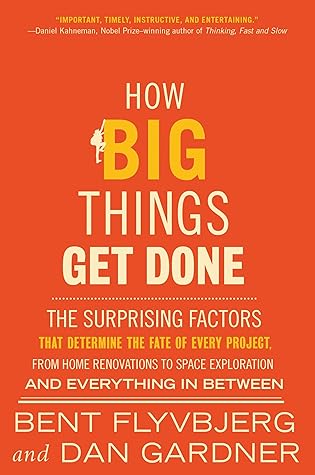More on this book
Community
Kindle Notes & Highlights
Read between
October 12 - October 27, 2025
fat-tailed distributions, not normal distributions, are typical within complex systems, both natural and human, and we all live and work within increasingly complex systems, which means increasingly interdependent systems. Cities and towns are complex systems. Markets are complex systems. Energy production and distribution are complex systems. Manufacturing and transportation are complex systems. Debt is a complex system. So are viruses. And climate change. And globalization. On and on the list goes. If your project is ambitious and depends on other people and many parts, it is all but certain
...more
Planning requires thinking—and creative, critical, careful thinking is slow. Abraham Lincoln is reputed to have said that if he had five minutes to chop down a tree, he’d spend the first three sharpening the ax.[29] That’s exactly the right approach for big projects: Put enormous care and effort into planning to ensure that delivery is smooth and swift. Think slow, act fast: That’s the secret of success.
In Kahneman’s laboratory experiments, the stakes are low. There is typically no jockeying for position, no competition for scarce resources, no powerful individuals or organizations, no politics of any kind. The closer a project is to that situation, the more individual psychology will dominate, which is what Kahneman, Amos Tversky, and other behavioral scientists have found. But as projects get bigger and decisions more consequential, the influence of money and power grows. Powerful individuals and organizations make the decisions, the number of stakeholders increases, they lobby for their
...more
The fact is that a wide array of projects—events, products, books, home renovations, you name it—can be simulated, tested, and iterated even by amateurs at home. Lack of technology isn’t the real barrier to adopting this approach; the barrier is thinking of planning as a static, abstract, bureaucratic exercise. Once you make the conceptual shift to planning as an active, iterative process of trying, learning, and trying again, all sorts of ways to “play” with ideas, as Gehry and Pixar do, will suggest themselves.


